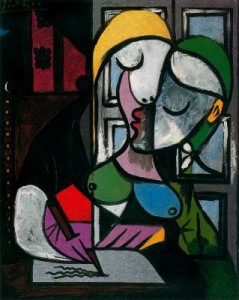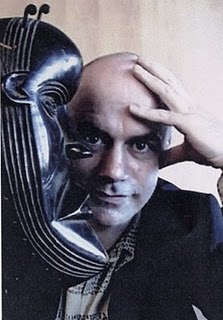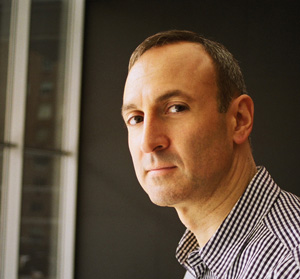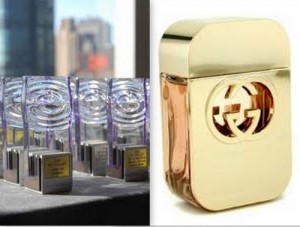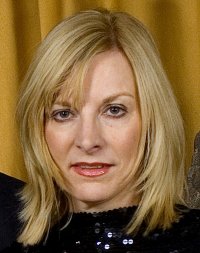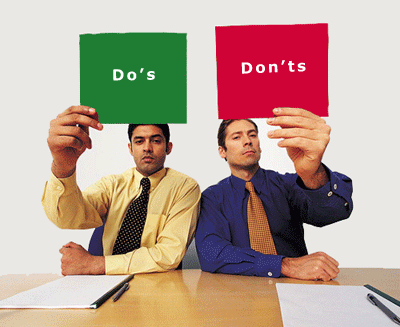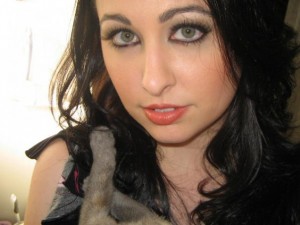You have received death threats, been called a hack, the blogging community (former friends) shun you, and threats from perfumers and readers are just part of your daily routine. Your style is copied, your reputation is dragged through the mud. Don’t despair you’ve made it; you have a successful blog!
Managing Director Didier Cholay and I attended the Fragrance Foundation Breakfast Finalists May 8, 2011 and sat at a table far in the back with quite a few “journalists”. One young woman who writes for an industry publication to my right said “What a relief, this is terrific; we usually get stuck with the bloggers”!
We came away with four Fifi finalists positions (the first in FiFi history and in our first year). My ex-boss Zoca of Fragrantica was the only “nominee” to congratulate us. You have to understand we expected nothing, but it was an honor to be recognized. On our way out, I heard a few bloggers grumbling that there should be a separate award for bloggers only.
And that is one of the subjects of this letter.
“You must be, as blogger leader, very careful of what you’re divulging because you are the more efficient guarantor of the quality and veracity of any commentaries concerning fragrances and perfumery”- Bertrand Duchaufour (2009)
With the departure of Chandler Burr, many magazines and magazine blogs do not seem to have the same level of passion for perfumery. I didn’t always agree with Chandler, but he fact checked and even retracted comments when he felt he made a mistake. He is and always will be an original.
While I am not the perfume police I have read quite a few errors in magazine articles, misquotes, and attribution of fragrances to the wrong perfumers and other examples of sloppy reporting. I believe that magazines should look to the blogger community, the passionate perfumistas as their model. If you are going to write about fragrance, you cannot be a generalist, you need to immerse yourself in its world and there are just a few magazine writers who do that..
“I am sure of one thing: time is the best judge of a fragrance. If Perfumery is to remain an Art, it will be those fragrances that compel us based on quality and originality, not necessarily label or price” –Bertrand Duchaufour -2009
Commercial and niche fragrances are becoming very close, and lines are not as clear as they once were. One of our top stories last month was written by Managing Editor Mark Behnke, Boys of Summer which praised the consistent quality of Thierry Mugler flankers . We all have smelled Gucci Guilty and agree it is an excellent scent and yes FiFi worthy. Marc Jacobs Bang brought a bit of niche to the mass market with the talented Yann Vasnier. After reading Contributor Sergey Borisov’s article that talked about Bleu de Chanel, there was tremendous insight into the composition that only a blogger would report.
According to a prominent e-tailer, last year’s FiFi awards didn’t help his sales. “Perhaps with the specialists committee (newly appointed), to judge best Indie fragrance this might change,” he said.
I would like to share the following with small bloggers, perfumers and anyone who would like to learn from a professional publicist, Susan Bang of www.susanbang.com formerly a Director of Loreal, on how to handle the press without stress.
PR DOS AND DON’TS FOR INTERVIEWS-
Writers and of all stripes- – bloggers, magazine or newspaper editors, or online journalists – are under greater pressure than ever to produce fresh, original and timely content. The downside: the pace of the reporting and news cycle has accelerated to the point that accuracy, fairness and editorial standards can suffer. Don’t be a victim of this. There are steps you can take to ensure that you’ll deliver a meaningful interview, position yourself and your product/company successfully, be quoted fairly and truthfully, and have the tools to rebut parts of a story if need be.
Don’ts
Do not say anything “off the record” even when promised. There is no such thing. While you might think you’re giving background or context, whatever you say can and most likely will appear in the story – usually under the guise of “industry insiders say”. If you don’t want it in the piece, don’t say it, period.
Do not rely on the blogger or reporter’s memory or accuracy. Try to do the interview on email so you have a written trail. Tape record the interview whether on the phone or in person. You can always say that you want to have a record of what was said should the reporter have need for follow-up questions. If there are any misquotes, you have the back-up to prove it.
Do not assume they have a high level of knowledge on the topic. Many are generalists. Use questions to gauge their understanding and sophistication and frame your comments accordingly.
Do not agree with a writer who says, “Do you mean to say…..” when you don’t. It is OK to disagree and say, “Please let me clarify.” And then restate your comments.
Do not ask to see the story in writing before it runs. Journalists are not obligated to do so, and the request will annoy them and reveal that you are naive. You may ask them to fact check with you prior to publication; this tells them that you expect them to be accurate. It can help eliminate errors in reporting or misunderstandings before they happen. Make your position clear .
Do not embarrass anyone publicly, if there are inaccuracies, contact them privately, even your fellow journalists or bloggers. They may or may not thank you.
DO’S:
Find out as much as you can about the scope of the story and the information the writer needs from you. Ask for questions in writing and when their deadline is. When possible, find out whom else they are speaking with, especially competitors.
Research the media outlet and the journalist upfront. Understand the audience who will be reading your interview. Discover if the writer has any strong likes, dislikes or biases that might affect how they perceive your point of view negatively or positively.
Decide what you want to achieve with the coverage. Do you want to gain the attention of retailers? Greater visibility in the fragrance industry? Then, think about what you will need to say to get that story out.
Do a “conversation planner” for the exchange. Establish what’s important to include in the story and be sure to steer the conversation to include these copy points. Ask the writer to use a live link to your web site in the piece.
Do take the high road when you are publicly attacked; it just means they are more afraid of you then you should be of them. Keep a record, however if it becomes harassment or plagiarism, and decide what is worth fighting for. Don’t tilt at windmills.
Follow up with the writer to see how the story’s going and if they have any additional questions or needs. Be helpful and refer other sources where appropriate. Be sure you read it as soon as it’s been published. Write a thank-you note and ask to be considered as a resource for future stories. But, if you have issue with what has been written, be prompt in making your disappointment known, and why – in writing. A true journalist does not like to be wrong, and if they are, you must prove it to get any kind of retraction. Be calm but firm.- Susan Bang\
Our fragrance blogging community should take a lesson from Jennifer Matthews, aka www.mybeautybunny.com who started a Facebook forum whose sole purpose is to help the beauty bloggers -from newbie toexperienced blogger which treats each member with respect, shares information, and important new product information as a cohesive community.
Passion trumps politics.
– Michelyn Camen , Editor in Chief

